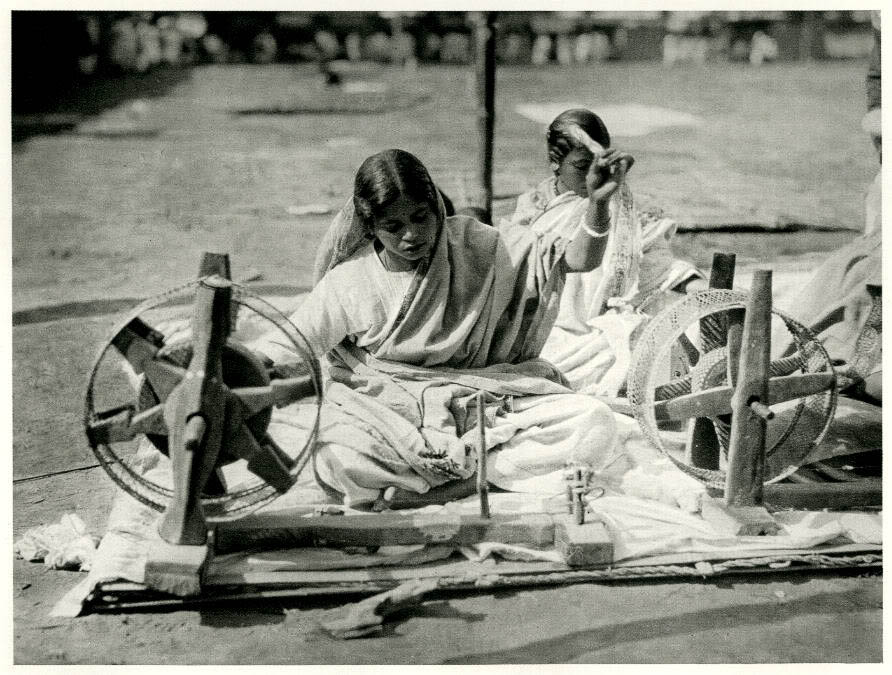When I give someone a handout, they call me a Saint. When I ask why they are poor, they call me a Communist. ~Archbishop Romero
Matt Harman, a student in Metta’s Certificate in Nonviolence Studies, has offered this reflection on generosity, inspired by the idea of “true and false generosity” as explained by Paulo Freire.
 Bengali Woman at the Spinning Wheel – a photogravure by Martin Hurlimann
Bengali Woman at the Spinning Wheel – a photogravure by Martin Hurlimann
Gandhi often spoke of the dignity associated with self-sufficiency I understand Gandhi’s insistence on bread work as a way to avoid or break from cycles of false generosity. False generosity is a term used to describe the detrimental consequences of charity based upon unequal relations between life. This type of giving is a consequence and perpetuation of maintaining unequal relations between life. For example, in India during the satyagraha independence movement, Gandhi encouraged the people of colonial India to spin their own clothing as a form of self-reliance. In essence to avoid the tariff system which tended to favor the export of raw materials and the import of British textiles, an oppressive economic cycle.
True generosity is often described as the act of recognizing the mutual dignity inherent in all life then subsequently working to balance the ongoing, and evolving, empowerment of all life. In short, it is teaching someone to produce or acquire their own means of sustenance rather than handing it to them in the hope that they will one day become self-sufficient without the transformation of society as a whole.
Yet sometimes an individual experience can transform a seeming act of false generosity into an expression of true generosity – I call it love. For instance, I often distribute fresh food that would otherwise be thrown away to people who are hungry simply because I know how it feels to starve. It is as painful as it is transformative and anyone who has experienced prolonged starvation and lived rarely wishes it on another life. Living in an affluent country that produces and imports immense quantities of food, few of the people I give food to are starving in the sense of months, years, at times entire lifetimes with little to no food. But they have days and weeks without much to eat, and their choices are as limited as they are erratic.
From a macro perspective, my distribution of food may be perceived as false generosity because I am simply giving food without offering any program to get people on their own two feet. Moreover, the food I am giving out was produced via an unequal socio-economic order that literally helps create and perpetuate humans in need of basic necessities such as food and dignity.
My personal experience leads me to perceive this act of giving food as a form of taking the products of an unequal social order and redistributing them imperfectly, albeit as best as I can within the current limitations of context I exist within. In short an attempt at true generosity. Moreover, I do not give out the food through pity nor insistence on future returns via social debt. Instead, I treat them as I do all humans – as life with inalienable dignity.
With that said I would love to have something else to offer. Some form of empowerment that ultimately encourages humans to gain more control over their lives and the meaning they entail rather than simply calories and echoes of love.
This is something I must continue to work for.









Matt, this is a good example of how difficult it can be to judge from the outside the true state of a person’s motivation (even one’s own!). And this is what makes all the difference in principled NV.